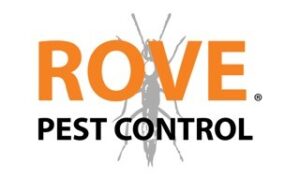With the seasons changing and temperatures on the rise, it’s going to be more common that you will start seeing centipedes in and around your home, but are centipedes poisonous?
Not every centipede is poisonous, but most are
Centipedes use a couple of front leg like appendages called maxillipeds to attack their prey. The maxillipeds also inject venom into their prey. The larger the centipede the more venom their bites will have.
The good thing is that centipedes rarely attack humans and in most cases their venom isn’t strong enough to do much beyond something similar to a bee sting. The pain from a bite can last up to a week in some cases, but most of the time the pain goes away after a few hours.
If you have an allergic reaction, the effects of a bite can be more severe though and could cause things like severe swelling, chills, or fever. Again, these are rare occurrences that centipedes bite humans to begin with, but if you have any extreme reactions it’s best to seek medical attention.
What centipedes are the worst and should you be worried?
One of the most dangerous centipedes is called scolopendras. They are one of the largest centipedes there is and they can grow up to 20 cm in length! Good news is they really only live in warmer temperatures, so if you are in the midwestern or northern states you probably won’t ever see them.
Thankfully, their bites aren’t dangerous enough to kill you, and there haven’t been any documented cases of anyone dying from a centipede bite in the United States ever.
The most common centipede you’ll see is the house centipede, and these guys almost never bite humans. More often than not, centipedes can actually hunt other pests in your home like spiders and other insects.
However, if you are seeing a lot of these around your house that usually means that they have a food source they are able to feed from, so you might have other pests in your home without knowing it.
Centipedes don’t really breed in your home, thankfully, because they lay their eggs in soil, and most often are there because they came in from outside. Having them in your home frequently usually means you might need to seal various entry points around your home as well as treat for other pests to reduce their food source.
Did This Blog Help You? We would greatly appreciate if you could comment below and share on Facebook
Have a question for us? Be sure to reach out on Facebook: www.facebook.com/RoveMinnesota
P.S. Have a pest issue? As a first time customer with Rove Pest Control – Click Here to get $50 off your initial service!
Did you get value from this post on, Are Centipedes Poisonous, please retweet below!
